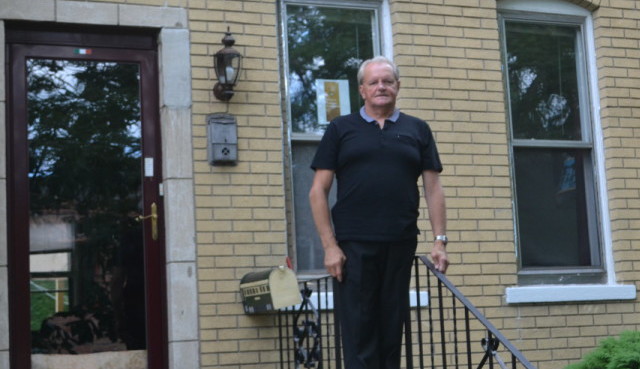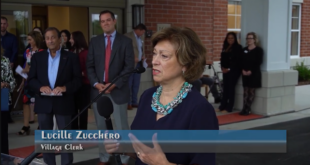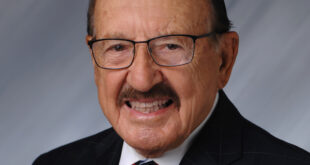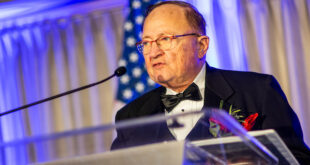Italian Americans have many reasons to celebrate the enclaves that nurtured immigrants and changed families: Taylor Street, 24th & Oakley, Little Sicily on the Near North Side and Melrose Park are just a few that come to mind. On the Far South Side, Roseland became a bustling center for Italian life and culture. One man has taken on the laudable task of keeping Roseland’s memories and magnificence alive: C.J. Martello.
Arguably, Martello knows Roseland and the adjoining Pullman and Kensington neighborhoods better than anyone. He was married at St. Anthony Italian Catholic Church in 1972, and has steeped himself in community projects, including the guided tours he conducts of the Pullman Visitor’s Center and Pullman National Monument Factory.
Martello has written Fra Noi’s Petals from Roseland column since October 2008, and the post has served as a springboard for deeper community involvement. “Authoring those articles deepened my interest in my Italian ancestry,” he says. “I dove into the opportunity feet first, joining a number of South Side Italian organizations — and within six months, being a co-founder of the Facebook page ‘Roseland Roundtable.’”
Roseland is unique among all Italian neighborhoods — not just in Chicago, but the U.S. — because of its unexpected diversity. “There has always been a mix of Northern and Southern Italians that have gotten along well,” Martello says. “As a matter of fact, the legend is that the Northern Italians won out in an event naming the parish St. Anthony’s rather than St. Alexander’s.”
Martello’s parents hail from Roana, a town of just 4,000 people due south of Austria, where his father was born. One of seven brothers and sisters (six still alive), Martello, 69, is a retired accountant for the Illinois State Police Forensic Science Center and spent a year and a half in seminary before switching to Roseland’s St. Willibrord Catholic High School.
And while Martello lived on the North Side for a spell, the attraction of his old haunts moved him — literally. “I became so involved in saving the memories of the Roseland-Pullman-Kensington community that I purchased a house in Pullman,” he says.
Even prior to returning, “many residents thought I was already living in Pullman,” Martello recalls. “I was a common site at civic meetings and functions, gathering information for my column.” He also rekindled his membership at St. Anthony’s, where does the second reading at the 8:30 a.m. Sunday Mass in Italian.
And if anyone is best suited to preserve the area and protect its heritage today, Martello is that man. He’s even gone so far as to write and star in a one-man show, “George Pullman: The Man and His Model Town.”
In the case of Roseland today, which today is predominately African American, recollections are all that’s left. “It has completely changed from when I called it home in the 1960s,” Martello notes. “However, Pullman has changed incrementally and, as a preservation community, it has retained much of its original appearance.”
And where the Roseland of old is evoked, Martello will likely have a place at the head of the table. “Roseland will always retain its nostalgic symbolism as a beautiful neighborhood community that inspired the youth of many,” he says. “It’s always best, as we say on the Roseland Roundtable, ‘remembered as it was,’ in both photos and our memories. The Roseland of today is not the Roseland of our youth.”
To arrange tours of Pullman or submit content for “Petals From Roseland,” contact Martello at 773-701-6756, cjfranoi@yahoo.com, or visit “Roseland Roundtable” on Facebook.
 Fra Noi Embrace Your Inner Italian
Fra Noi Embrace Your Inner Italian







